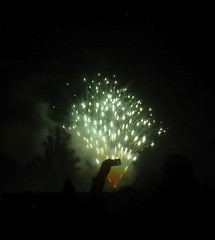December 25, 2013
Pardon, but is this reciprocal?
Tis' the season of pardons - I blog on Practical Ethics about my scepticism about pardoning Turing and a little theory of gratitude.
It is nice that they pardoned Turing, but the act itself doesn't mean much and actually has a disturbing undertone of elitism. But unlike the Russian amnesty there is an underlying attempt at reciprocity.
December 13, 2013
Don't fear the vacuum reaper
 A new paper argues that the current best version of the standard model predicts a metastable vacuum: Oleg Antipin, Marc Gillioz, Jens Krog, Esben Mølgaard, Francesco Sannino, Standard Model Vacuum Stability and Weyl Consistency Conditions. arXiv:1306.3234.
A new paper argues that the current best version of the standard model predicts a metastable vacuum: Oleg Antipin, Marc Gillioz, Jens Krog, Esben Mølgaard, Francesco Sannino, Standard Model Vacuum Stability and Weyl Consistency Conditions. arXiv:1306.3234.
I have no clue whether this analysis is any good or not. I have no clue about marginal operators or what quartic couplings do. But I still feel reassured by Max Tegmark, Nick Bostrom. How unlikely is a doomsday catastrophe? Nature, 438, 754 (8 December 2005) . That paper is still totally applicable, and puts an upper bound on the probability as one in a billion per year (at 99.9% confidence level). The awesome thing is that the analysis is totally independent on the exact details of the catastrophe, just its general characteristics.
Incidentally, the recent suggestion that there was a habitable early epoch of the universe makes the safety even bigger: if there is a population of planets with potential observers super-early in history, then in a risky universe (high probability of vacuum decay) one should expect oneself to be on such an early planet rather than a late planet like Earth. So the more planets we find in the early universe, the more stable the vacuum looks.
December 07, 2013
Hunting clichés
 Avi and me write in the Conversation about The seven deadly sins of health and science reporting.
Avi and me write in the Conversation about The seven deadly sins of health and science reporting.
Not sure "deadly sin" is the right term here, the headline is not mine. Somehow I doubt journalists who die after writing an article about the "gene for X" without apologizing to the spirits of accuracy, honesty and fairness, will end up in hell (as a paid spokesperson for some nasty industry?) But they are clichés that make us slightly more stupid.
The problem is that we want to know actionable, surprising things - that is news. But science is mostly generating non-actionable confusing results. So we get the rare breakthrough mixed in with the everyday noise of misreported, misunderstood or hyped (by researcher, university or journalist) research. This promotes bias.
Daniel on AI
My co-worker Daniel speaks about AI at TEDx Vienna: